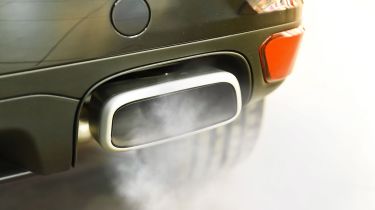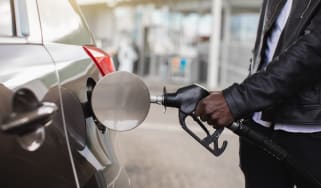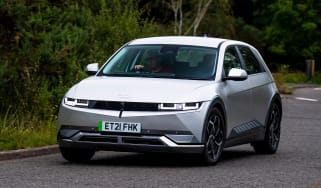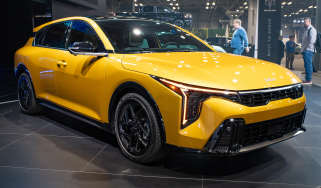UK fleet average carbon emissions down 11.8 per cent as EV take-up increases
Sustainability improves across the automotive sector in spite of the pandemic’s hit to turnover

The 22nd sustainability report from the Society of Motor Manufacturers and Traders (SMMT) showed that UK fleet average carbon emissions were down by a record-breaking 11.8 per cent in 2020 in spite of the pandemic.
Electric vehicles accounted for more than one in 10 new car registrations in 2020, while there was a 90 per cent increase for plug-in hybrid cars. As of last year, alternatively fuelled vehicles (EVs, PHEVS and conventional hybrids) account for 18.8 per cent of all cars made - up from 14.8 per cent in 2019. The market share for electric cars alone is 4.5 per cent.
These vehicles are also being manufactured with 14.2 per cent less energy and 36.8 per cent less water used per vehicle than in the year 2000, the report shows, with total combined waste to landfill down 98.7 per cent and CO2 equivalents per vehicle falling by 36.5 per cent.
The SMMT warns, however, that the industry’s speed in making electric models available must be matched by a rapid deployment of EV charging infrastructure. Manufacturers were also praised in the report for continuing to invest in employee development, training and apprenticeships.
The UK automotive sector saw a 24.6-per-cent decline in turnover last year as a result of Covid-19, but there has still been an overall increase of 25.7 per cent since 1999 to £60.2 billion.
Mike Hawes, chief executive of the SMMT, said: “The impact of the pandemic on a sector such as automotive - one which depends on global supply lines, strong consumer demand and a highly skilled workforce - was always going to be severe. As the latest sustainability report shows, economic and market growth stalled with many factories shuttered and retail closed.
“Yet the pandemic also proved the importance of the sector as it turned its capabilities to PPE and ventilator manufacture and assured the nation’s mobility through the continued servicing and repair of vehicles. Despite the adversity, the industry’s commitment and investment in zero-emission vehicles remained undiminished, delivering the best-ever single year of fleet average carbon reduction.
“Much more needs to be done on this and so many other sustainability indicators, to which the sector looks to the Government to ensure the framework, incentives and infrastructure exist to enhance our competitiveness and deliver the sustainable future society demands.”
Check out the best-selling cars in 2021 so far...
Find a car with the experts








